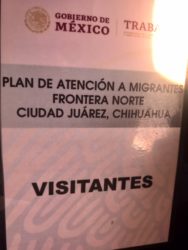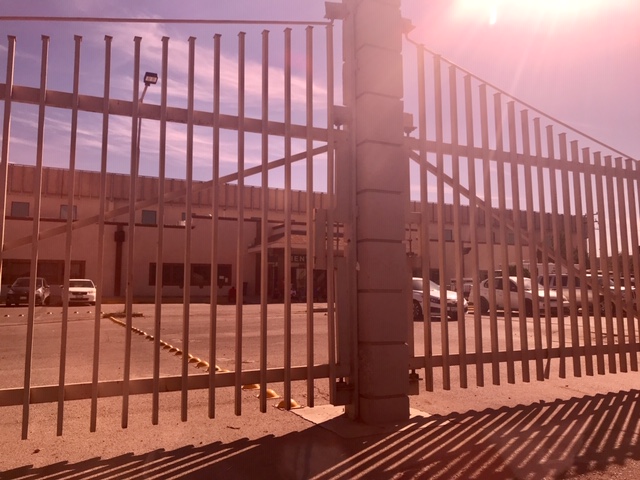I got back late Saturday night and, I have to say, I’m even more frustrated, disheartened and angry than I was before I went. As I learned instantly from organizations working at the border that first day: with the restrictive government policies in place right now, there’s not much we can do legally (or illegally).
 I was under the impression that I’d be working at the shelters and detention centers, doing anything that needed to be done—working with these people who are desperately trying to claim Political Asylum ; doing anything to help them wile away the hours and days they spend there, possibly, teaching them some English or geography or anything else that interests them. I was even ready to help with folding towels or serving meals. However the organization I was working with had the volunteers (there were 6 of us that week) spending all day interviewing as many immigrants who walked into CAIM (Mexico’s Center for Comprehensive Migrant Services). Ironically, CAIM was situated in view of the International Bridge where they had been pushed back across into Juarez by Border Patrol due to the administration’s new MPP (Migrant Protection Protocols) more properly dubbed the “Remain in Mexico” policy.
I was under the impression that I’d be working at the shelters and detention centers, doing anything that needed to be done—working with these people who are desperately trying to claim Political Asylum ; doing anything to help them wile away the hours and days they spend there, possibly, teaching them some English or geography or anything else that interests them. I was even ready to help with folding towels or serving meals. However the organization I was working with had the volunteers (there were 6 of us that week) spending all day interviewing as many immigrants who walked into CAIM (Mexico’s Center for Comprehensive Migrant Services). Ironically, CAIM was situated in view of the International Bridge where they had been pushed back across into Juarez by Border Patrol due to the administration’s new MPP (Migrant Protection Protocols) more properly dubbed the “Remain in Mexico” policy.
Continue reading At the El Paso/Juarez Border – by Dr. Barbara Weitz

